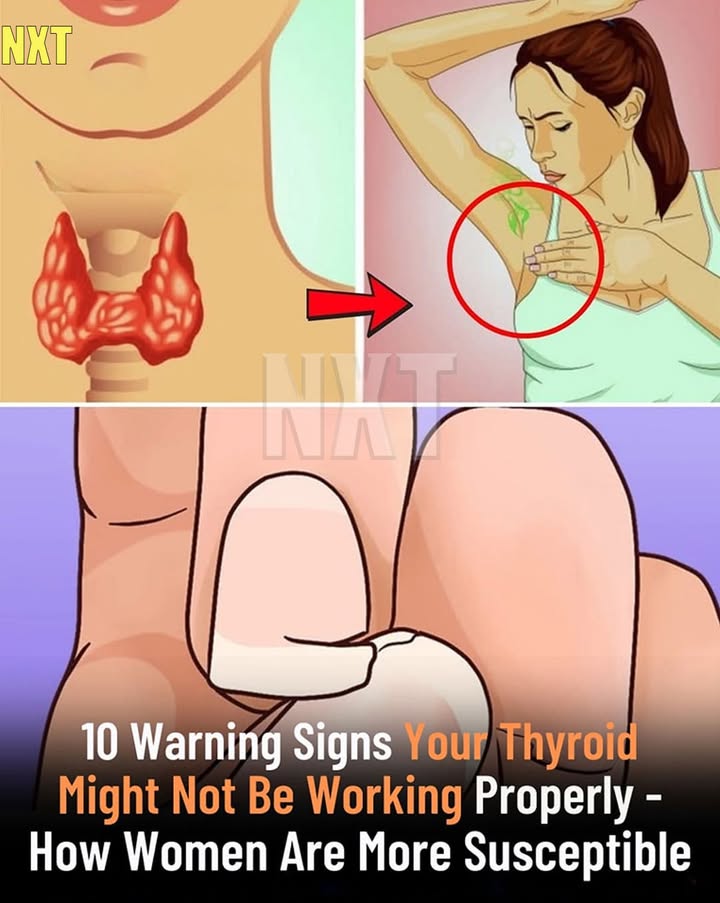
 1. Fatigue and Sluggishness
1. Fatigue and Sluggishness
- Constant tiredness even after a full night’s sleep may indicate hypothyroidism.
- The thyroid hormone plays a key role in energy regulation—low levels slow down the body’s metabolism.
 2. Hair Thinning or Hair Loss
2. Hair Thinning or Hair Loss
- Unexplained hair loss, especially at the scalp’s center, can be a result of imbalanced thyroid hormones.
- Both hypo- and hyperthyroidism can disrupt hair growth cycles.
 3. Feeling Cold All the Time
3. Feeling Cold All the Time
- If you’re constantly cold while others are comfortable, it could mean an underactive thyroid, which slows metabolism and body heat production.
 4. Rapid or Irregular Heartbeat
4. Rapid or Irregular Heartbeat
- Hyperthyroidism can cause your heart to beat faster or irregularly, especially during rest.
- Palpitations, skipped beats, or pounding in the chest may occur.
 5. Depression or Mood Changes
5. Depression or Mood Changes
- A malfunctioning thyroid can cause low serotonin levels, leading to depression, anxiety, or mood swings.
- Hypothyroidism is especially linked with emotional imbalance.
 6. Unexplained Weight Gain or Loss
6. Unexplained Weight Gain or Loss
- Gaining weight despite dieting could indicate hypothyroidism.
- Losing weight rapidly without trying might suggest hyperthyroidism.
 7. Menstrual Irregularities or Fertility Problems
7. Menstrual Irregularities or Fertility Problems
- Heavy, irregular, or missed periods may result from thyroid issues.
- It can also affect ovulation, making conception difficult.
8. Digestive Issues
- Hypothyroidism may cause constipation due to a slower digestive process.
- Hyperthyroidism may lead to frequent bowel movements or diarrhea.
 9. Dry Skin and Brittle Nails
9. Dry Skin and Brittle Nails
- Dry, flaky skin and splitting nails are common in people with hypothyroidism.
- The condition affects skin hydration and collagen production.
10. Body Odor (Especially Underarm Odor)
Unusual or strong underarm body odor can be linked to thyroid imbalance, especially hyperthyroidism.
It causes overactive sweat glands and changes in body chemistry, which can intensify odor.
Additionally, thyroid issues can disrupt liver function, impacting toxin breakdown and contributing to body odor.
 Why Women Are More Susceptible:
Why Women Are More Susceptible:
- Women are 5 to 8 times more likely to develop thyroid disorders than men.
- Hormonal events such as pregnancy, postpartum changes, and menopause increase the risk.
- Autoimmune conditions like Hashimoto’s thyroiditis are more common in women.
 What To Do:
What To Do:
- If you notice several of these symptoms, consult a healthcare provider.
- A simple blood test (TSH, T3, T4) can evaluate thyroid function.
- Lifestyle changes, medication, and nutritional support (iodine, selenium, zinc) may help restore balance.

